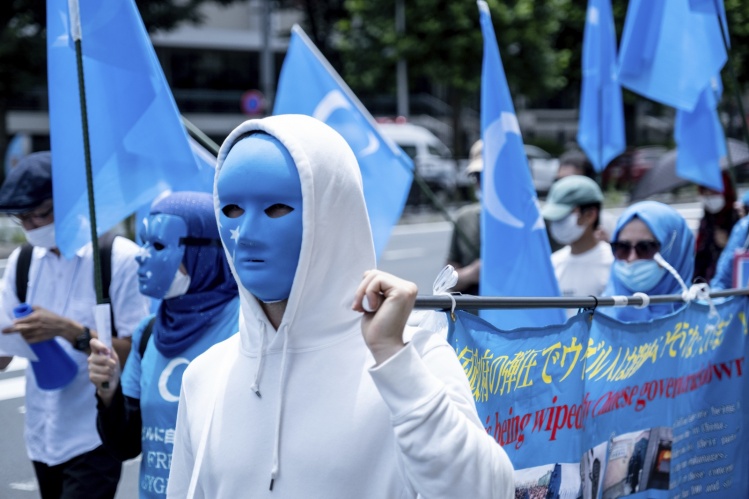China’s Living Dead: The assault on the Uyghurs continues
Originally published in Commonweal
Gulbahar Haitiwaji hoped it would be the last time she would have to betray a family member. She had already denounced her own daughter, her husband, and Uyghur activist leader Rebiya Kadeer the month before. That video-recorded “confession” had secured her release from the Chinese prison camps, where she had been detained for more than two years. But Gulbahar was not actually free. Instead she was sitting in a plush room in a house adjacent to the prison camp, ordered by the Chinese police who lived with her to call her family in France. She had not spoken to her husband or daughters since she was first arrested two and a half years earlier. Did they even know she was still alive? What would she tell them?
Gulbahar did not have to worry about being tongue-tied. The police would sit next to her during the call, providing her with notes on what she should ask and what she was forbidden to mention. If she ever wanted to see her family again, the police told her, she would instruct them to stop their public advocacy on behalf of her and millions of others caught up in China’s genocidal campaign to destroy the Uyghur people.
She readily complied. Refusal to go along with the police meant going back to the hell of the Xinjiang camps, with their constant degradation: sharing a small cell and one squat toilet with thirty other women; a starvation diet; rarely bathing and wearing clothes encrusted with two years of dirt; constantly being called a “filthy terrorist”; being shackled and hooded whenever she was moved to a new room or camp; being forbidden to speak her native Uyghur or show any signs of her Muslim religion; rarely seeing daylight; and being chained to her bed for twenty days, forced to defecate in front of her cellmates.
Gulbahar’s calls continued to be monitored for months. “Are you sure you are alone?” her daughter would ask whenever she called. Yes, Gulbahar would sheepishly reply, as the police wrote down her daughter’s every word—including the fact that she was meeting with French government officials in an effort to free her mother. “My room became the field headquarters for a Chinese intelligence operation directed against my own family, and I was a part of it,” writes Gulbahar in her powerful, heart-wrenching memoir, How I Survived a Chinese “Reeducation” Camp: A Uyghur Woman’s Story. “I had become a bargaining chip between my family and the police…. Lies leave a terrible taste in your mouth.”
Only after her husband and daughters removed all of their social-media posts about Gulbahar’s disappearance, in August 2019, did the Chinese government finally allow Gulbahar to return to France.
CLICK HERE to finish reading this article.
 On Facebook
On Facebook By Email
By Email 
